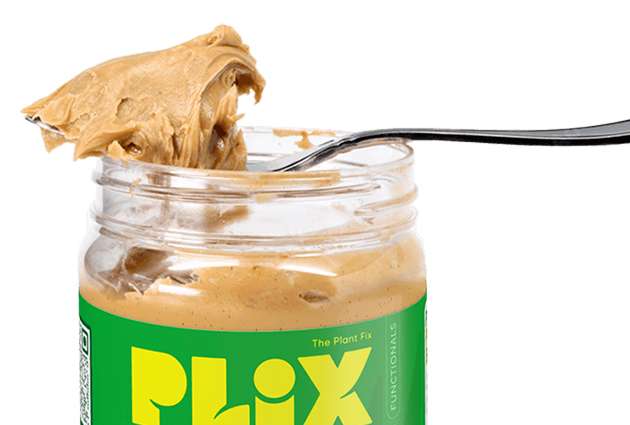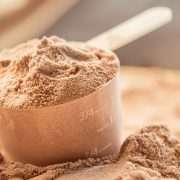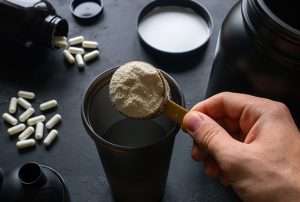The healthiest peanut butter is..

Peanut butter – you either love it or you hate it. There is no in between!
No matter which side you are on, you cannot deny that peanut butter is a super healthy spread.
Shelves of supermarkets are filled with various types of peanut butter; from smooth to chunky, to flavoured and even organic.
While we all know peanut butter is healthy, which of the peanut butters available is the healthiest?
Keep reading to find out.
Peanut Butter – is it actually good for you?
Before we tell you about the healthiest peanut butter available, let’s understand the health benefits of peanut butter and evaluate whether it is actually good for you.
The truth is peanut butter is high in calories, and using it in moderation – that is 2 tablespoons a day is good for you. However, consuming it in desserts and higher quantities may lead to unnecessary calorie intake.
2 tablespoons of peanut butter contains:
- 7.02 grams of protein
- 57 milligrams of magnesium
- 107 milligrams of phosphorus
- 0.85 milligrams of zinc
- 4.21 milligrams of niacin
- 0.17 grams of Vitamin B6
This combination of protein, minerals and vitamins is extremely healthy and has a multitude of health benefits for your body.
Which Is The Healthiest Peanut Butter of them all?
While peanut butter is in theory healthy, the truth is that most peanut butters available have added preservatives, sugars and other substances that make it more calorie dense and fattening than it needs to be.
Plix Life’s Healthy Peanut Butter is completely natural, and contains no added sugar, flavours or any other ingredients therefore making it the healthiest peanut available. It is a low-calorie, all-natural peanut butter in a crunchy, buttery texture. It contains 9.28 grams of protein in a single serving.
Related Article – Know why Peanut Butter is the Ultimate Superfood
Its benefits include:
1. Rich In Antioxidants
Plix’s delicious peanut butter is rich in antioxidants, Vitamins E & B and minerals. It contains coumaric acid which is a powerful antioxidant, which is amplified when the peanuts are roasted before they are whipped into a butter. It is also rich in resveratrol, which has anti-cancer effects.

2. Helps You Manage Your Weight
Plix’s low-fat peanut butter contains healthy fats that can help you lower the risks of weight gain and obesity. How does it help? When you consume peanut butter, it takes a long time to digest and makes you feel fuller for longer. This prevents you from snacking and feeling hungry more frequently. You can also use peanut butter in smoothies and oat bowls to make them all the more healthy.
3. Keeps Your Energy Levels Up
Plix’s peanut butter has a higher protein content than average peanut butters. When you consume Plix’s high protein peanut butter, it keeps your energy levels and productivity high.
Related Article – Peanut butter protein: Health benefits of Peanut Butter
4. Keeps Your Cholesterol Under Control
Plix’s all-natural peanut butter is a nutty delight that helps keep your cholesterol levels in check. This is due to its high amounts of unsaturated fats, which may reduce your LDL cholesterol levels. Studies have shown that having optimal LDL levels is linked to a high intake of nuts. However, always make sure that you don’t go overboard with peanut butter. Just two tablespoons a day is all you need.
5. Maintains Bone Health
Peanut Butter is also a great source of copper, which is a mineral that helps promote bone health. In fact, copper can reduce risks of developing osteoporosis and even heart disease!
Plix Life peanut butter brings you that nutty crunch in every bite. Out of all the peanut butters available today, it is also the healthiest! Choose Plix Peanut Butter, for an all natural, healthy peanut butter that will help you achieve your health goals.














